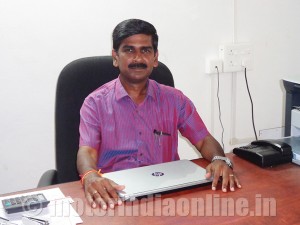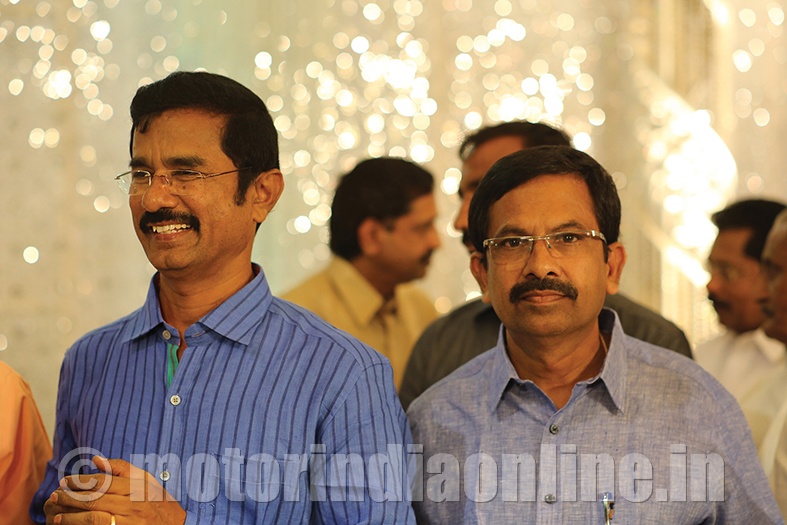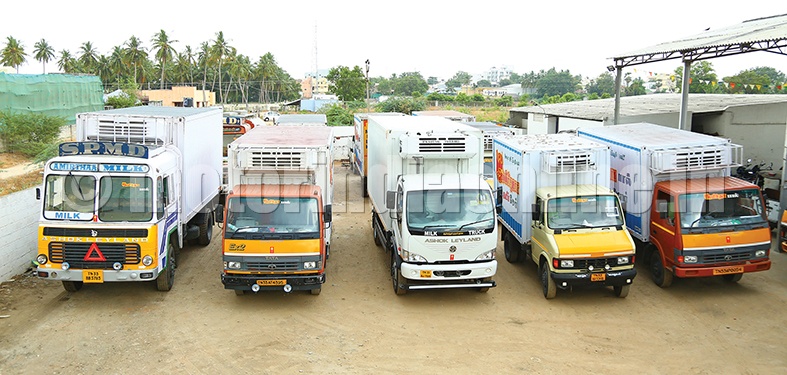S.P. Mani & Mohan Dairy (India) Pvt. Ltd. (SPMD), Erode, T.N., an ISO 9001 certified company is one of the leading manufacturers & suppliers of milk and milk products under the popular ‘Amirthaa’ brand. We had an exclusive interaction with Mr. Dhayalan Mohanasundaram, Managing Director, and Mr. K. Ganesh, President – Business Development.
Excerpts:
Can you begin by giving us a background on SPMD operations and the milk flow route from farmer to consumer?

SPMD was started as a partnership firm by Mr. R. Mohanasundaram and Mr. S.P. Loganathan during 1984 in the milk supply domain. It has grown since then to become one of the leading suppliers of milk and dairy products in T.N., Pondicherry and parts of Kerala. The main products are milk pouches in various denominations depending on the fat content plus pouch packed curd and allied products under the brand name ‘Amirthaa’.
The company has 4 own milk chilling centres and around 600 village level collection points; from the collections centres, milk in cans is transported by small vehicles to the chilling centres. From the chilling centres the milk at 2-4 deg C is transported by insulated SS tankers to the mother dairy in Erode. At the dairy, the milk is processed, packed in pouches and transported by reefer trucks to the distributors in various places. It has a milk processing capacity of 2 lakh litres per day; and typically around 1.5 lakh litres are despatched every day to the consumers.

Kindly share details on your vehicle fleet for the cold chain.
We have totally 70 reefer vehicles doing both day and night shift operations and 5 insulated tankers to transport milk and milk products. Insulated tankers carry the milk from the chilling centres to the mother dairy and typically the distances are max around 100 km. We collect milk within 100 km radius and the chilling centres located strategically to cover the collection places. The insulated SS tankers typically take about 2 hrs max to reach the mother dairy with hardly any temperature drop. We use steel body PUF insulated reefers with SS lined inner chamber to transport the milk pouches. Fleet comprises right from 4 ton to 25 ton GVW vehicles of all makes; vehicles in the mid-segment, viz., 4 ton to 9 ton are more as compared to 25 ton multi-axle type. All our vehicles are fitted with Hwasung refrigeration unit and the temp of the product maintained at not more than 4 deg C thro’ the transport chain to the distributor. Distribution operations are managed by our transport dept. that has a dedicated staff and workshop to attend to service needs.
What challenges do you face in the transport operations? What actions have you initiated to tackle them?
Milk and milk products demand keeps changing and also we have seasonal demands due to marriages and other functions. To respond to these scenarios, we have a dedicated call centre at our dairy that takes of the orders from dealers on a dynamic basis to scale-up or down the production. Drivers have the route map for deliveries and hence the loading/unloading sequence is accordingly carried out. Temperatures are monitored by them and they are trained well in handling the products. The real challenges are in the road conditions in the rural side and retention of drivers in our organisation. While the road conditions are improving, driver retention becomes critical as many opportunities are opening for them with colleges and schools taking them readily with better remunerations – it is a supply and demand situation. All the vehicles are owned by us and drivers our employees and we attend to their grievances, issues and requirements to keep them motivated and under our fold.
In transit, at toll booths, we generally have a priority because of short shelf life perishable products we carry and do not face much of a problem. As regards vehicle or reefer equipment problems en route, we have a team that can attend to the same fast. Routine maintenance checks are done at our workshop and the same eliminates most of the road issues; and trained technicians can rush to attend the difficulties if en route problems arise. Alternatively we have our other passing vehicles in the route or nearby locations and the products can also be shifted. These types are few in nature and we have been able to overcome such challenges without much difficulties.

What Govt. incentives and steps do you think are needed to improve cold chain transport in the country?
Success of cold chain depends upon both infrastructure and transport functioning smoothly. Quality power is essential for chilling centres and dairies and in this regard, Govt. initiatives are definitely needed to improve the situation; though back-up power is available, it adds on to the operational costs. Traffic congestion has become a problem; what appeared to be a 4 lane highway some time back today has become congested and movement at many sections very slow; again efforts need to alleviate this ground reality.
From our end, we are planning hub and spoke model in the primary distribution to overcome the above congestion issues. Also with more dealers joining Amirthaa family, distribution routes are increasing and hence this solution will be implemented, viz., our own product collection centre at the hub to redistribute to the desired routes as per needs. We are also recommending our dealers with sub-dealers to adopt the hub and spoke model to effectively meet the demand on time and penetrate the fast growing rural market.
